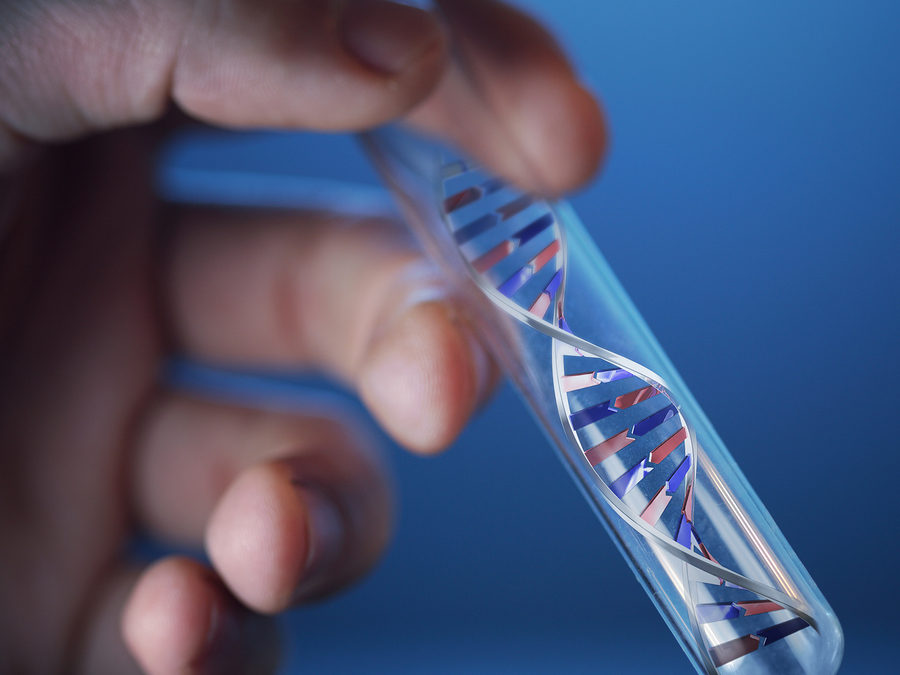While many genetic disorders are diagnosed in infancy or childhood, some don’t reveal themselves until later in life. If you’re an adult who is wondering if your symptoms or the symptoms affecting family members may be due to an inherited genetic condition, you may not know where to start.
If you’re considering starting a family, you may want to understand the risk of passing the disorder on to your children, and potential ways to avoid that. We’ll help demystify the process of genetic testing for inherited disorders that often don’t appear until adulthood.
Which Genetic Conditions Can Be Diagnosed in Adulthood?
Some genetic disorders don’t or may not develop until after childhood and adolescence. Examples of some of these adult-onset genetic conditions, according to the Texas Department of State Health Services, are:
- Charcot-Marie-Tooth syndrome
- Marfan syndrome
- Ehlers Danlos Syndrome (EDS)
- Huntington Disease
- Myotonic Dystrophy
- Spinocerebellar Ataxia
- Hypertrophic Cardiomyopathy
- Hereditary Long-QT Syndrome
- Hemochromatosis
- Porphyria
Where To Start
If you want to proceed with testing for a suspected inherited genetic condition, where do you begin? Often, your primary care physician can order the test, but you may also want to ask for a referral to a genetic counselor for a consultation and more comprehensive evaluation. Or, depending on your symptoms, your primary care physician may refer you to a specialist. For example, if your symptoms are primarily neurological, they may refer you to a neurologist for further evaluation and testing.
Start by scheduling an appointment with your primary care doctor to discuss your concerns and symptoms.
Will Insurance Cover Genetic Testing?
The answer is, it depends. Health insurance providers have different policies about which tests are covered and under which circumstances, says the NIH. Before you decide to have a genetic test done, you should verify coverage with your insurance company and be sure you understand any requirements for getting the testing covered. Your insurance company may require a referral from your primary care doctor before they will pay for the test.
In many cases, health insurance will pay for an appointment with a genetic counselor. Genetic counselors can work with insurance companies to get testing covered. Insurance will often pay for genetic testing when it is recommended by a physician, says the National Society of Genetic Counselors (NSGC). Some insurance companies require genetic counseling before they authorize coverage of genetic testing.
What if I Don’t Have a Genetic Specialist Nearby?
If you live in an area with a shortage of genetics professionals, you may want to look into telegenetics. This new technology uses interactive video and a secure, high-speed data connection so you and a genetic counselor can meet “virtually” in real time, according to NSGC.
Some laboratories provide access to genetic counselors free of charge to answer specific questions about the test performed at their lab. Other telehealth services, such as Genome Medical and InformedDNA, remain unaffiliated with a specific testing laboratory. They can provide information about the benefits and limitations of tests offered by various labs, allowing the patient to make an informed decision.
Since genetic counselors are highly trained professionals who understand the nuances and complexities of genetic tests, they can be a great resource to help you find the “right” genetic test for you. They can also prepare you for the likelihood of the different types of results you may receive, and help you think through how you might handle the results.
How Does Genetic Testing Work?
A sample of blood or saliva is collected and sent to a laboratory, where genetic technicians look at the sample to find specific alterations in the DNA sequence or chromosomes. The type of disorder being tested for determines the type of analysis that the laboratory does on the sample. The test results are reported to the physician who ordered the test and/or to the patient directly via secure patient portal if requested, according to the National Institutes for Health (NIH).
It can take anywhere from a few weeks to several months to receive your test results, says NIH. For your particular test, ask the health professional who ordered it how long it will take to get your results and how you will receive those results. Sometimes the healthcare professional will encourage you to make an in-person or telehealth appointment to reveal the test results, especially if the results are known to cause emotional distress. For example, a protocol written by the Huntington’s Disease Society of America recommends that genetic test results be revealed at an in-person visit.
What Do the Results Mean?
You may be eager to hear a positive or negative result from your genetic test, but sometimes the results are not clear. This is why a genetic counselor or other specialist can be a helpful resource in your journey.
If your result is positive, this means that the lab found a change in your DNA or chromosomes. This may mean different things depending on the specific test. It could confirm a diagnosis, show that you are a carrier of a genetic mutation or indicate that you’re at increased risk of developing a specific disease in the future.
If your result is negative, this means that the lab did not find a change in your DNA or chromosomes. This can mean that you do not have the genetic disorder, are not a carrier or do not have an increased risk of developing a specific disease. However, sometimes further testing is necessary to confirm the negative result. Depending on your family history and test results of other relatives, a negative result may indicate that you are “in the clear” of an inherited condition — or it may reduce your risk by a certain amount, but not rule it out.
Your test result may also be given as “uninformative, indeterminate, inconclusive, or ambiguous,” according to the NIH, or as “variant of uncertain significance or VUS.” This is because everyone has common variations in their DNA that don’t affect their health. A change in DNA may have been found, but the test is unable to tell whether it is one of these normal variations, or a potentially disease-causing genetic mutation. This result can’t rule out or confirm a diagnosis, and can’t be used to determine whether you are at risk of developing a specific disorder. In this case, further testing, or testing of other family members, may be needed to yield a conclusive result. Sometimes a laboratory has not observed this change in other people and has to gather more data in order to reclassify the change as positive or negative. Therefore, it is important for you to recontact the laboratory annually to see if the interpretation of your ambiguous gene change has been updated.
Can My Fertility Specialist Help?
If you’re already working with a fertility clinic, they may have access to genetic counselors and testing services, and may be able to offer assistance in navigating the process. Make sure to express your concerns to your fertility specialist, and ask if they offer genetic counseling and/or testing.
[cf]skyword_tracking_tag[/cf]

Lauren Arcuri is a freelance writer in northern Vermont. She writes about science, health, and medicine, including genomics, neuroscience, and rare diseases. She has written for Pacific Standard, Proto, Genome, Yoga Journal, and many other publications.
